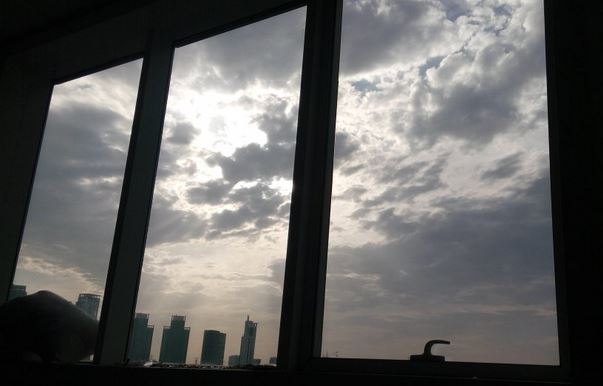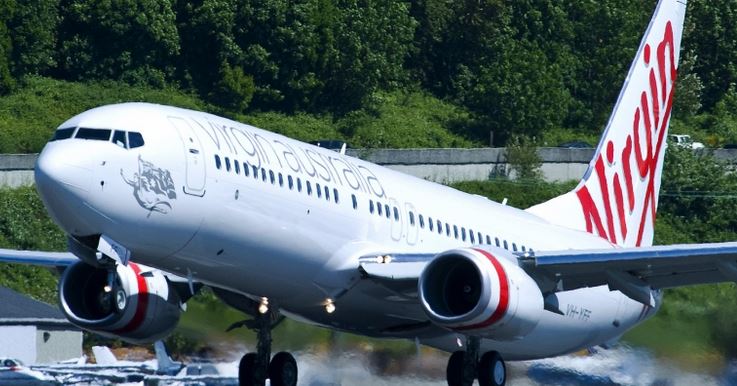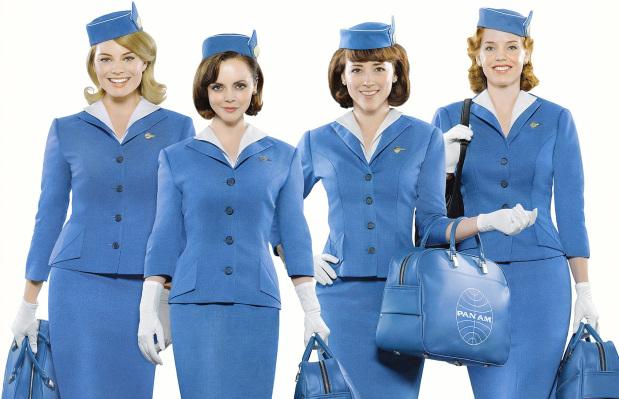
After two flights and one long lounge stay on the same day, I can say that Alitalia is doing something right. Continue reading The Alitalia experience

After two flights and one long lounge stay on the same day, I can say that Alitalia is doing something right. Continue reading The Alitalia experience
Savona is everything Genoa promised to be, but wasn’t for me. The harbour area has been rejuvenated beautifully, with the old and new blending to make a chic dining and residential area. Continue reading My Savona
One bad choice can spoil a whole holiday. Had it been my intention to stay in Genoa (Genova) for a few days, then the hotel I chose would have been a disaster.
But I chose the Best Western Airport Hotel purely because, as its name suggests, it’s close to the airport. I knew I’d be exhausted after flying from Abu Dhabi to Munich, and then taking two more flights across the day (with many hours of waiting time in between) to get to the Italian Riviera. Continue reading Genoa? Hardly at all
When is an airport lounge not an airport lounge? When it’s an “exclusive waiting area”.
That’s what Air Berlin has at Munich Airport’s Terminal 1, and that’s where I am writing this. Continue reading Lounge lite
I’ve written before about flying first class with Etihad Airways. And, to be honest, I thought I’d be writing now about the business class experience on my flight from Abu Dhabi to Munich.
But then they upgraded me to first class. So this is about that experience. And it was slightly different to last time, because it was a different aircraft. Continue reading Another class act
One of the best benefits of frequent-flyer scheme membership is access to airport lounges. They certainly enhance the trip — to the point where some travellers prefer the pre- (and sometimes post-) flight experience to the flight itself.
My flight-cruise adventure began properly in the Etihad Premium Lounge at Abu Dhabi airport. Or, more correctly, lounges — because I sampled both the Terminal 3 Premium Lounge, where I’ve been many times, and the Terminal 1 Premium Lounge, which was located closer to my departure gate. Continue reading Lounging around

As of right now, I am blogging my holiday. Unlike last time, I will make each entry a separate post, making it easier to read (you won’t have to start at the bottom to follow the thread). Continue reading The journey begins
I (mis)spent some of my youth at race tracks, and a lot more of it listening to horse talk and race calls on the radio on a Saturday, due to my father’s interest in the sport. Continue reading An evening at the races
A few weeks ago, a colleague went to Cuba. I was envious, because Cuba is on my bucket list and I know, as he knew, that since the American decision to drop sanctions on Havana, it’s only a matter of time before that destination will lose a lot of its unique identity.
Ideally, I’d like to get to Havana before the first McDonald’s or Starbucks, but since they are multinational corporations with more money than I can imagine, it’s not looking good.
I hope that the lot of the average Cuban will get better, although I am mindful that capitalism, like communism, doesn’t work for everybody.
It’s also a reminder of why we travel: to see destinations through the eyes of the people who live there. If they welcome the American dollar, then we should too on their behalf.
The video above is Los Paraguayos performing what is almost certainly the most famous Cuban song, Guantanamera.

I’ve just booked my next cruise — for next week (I don’t muck about) — and it will mean travelling on the flag ship of the Costa fleet, the Diadema.
With a capacity of 4,947 passengers plus 1,253 crew, a length of 306 metres, and a gross tonnage of 132,500 (all according to Wikipedia) — and, apparently, a stunning art collection — it’s a mighty vessel, though in most metrics smaller than the Norwegian Epic, on which I cross the Atlantic two years ago.
I’ll be flying into Munich on Etihad on March 10 and then making my way, probably by train, to Savona for the March 12 departure. The itinerary takes in Western Med ports including Palma Mallorca and Barcelona.
This will be my fourth Costa cruise in just over two years. I was hoping to travel with another company this time, but the dates didn’t suit my schedule. And, as usual, Costa had a great last-minute booking deal.
Of course, I will be updating my progress here.
The story about the two women with identical boarding passes struck a chord with a friend who accessed it via Facebook.
Here’s his account, with some changed names and other edits to protect identities: Continue reading Mistaken identity
A few months ago, I almost lost all my points with Velocity, Virgin Australia’s frequent-flyer scheme. To be fair to Virgin, they gave me plenty of warning that I’d have to earn more points or redeem some to keep my account active. Continue reading Talking points

Here’s some good news for those of you planning a trip to Mars.
According to this report, Nasa is looking at a way to reduce travel time to the red planet to just three days.
The secret, apparently, is something called photonic propulsion, which may or may not be related to warp speed on Star Trek. The Daily Mail, a British newspaper, describes it as “a technique that uses light from lasers to produce thrust to drive spacecraft”.
Given that no humans have actually been to Mars yet, the estimated average current mission time is 162 days, and the expectation is that people who go there won’t be able to return, I wouldn’t be racing out to buy a ticket right now.
But at the same time, I was born before men landed on the Moon, defying all expectations, so anything is possible.
Meanwhile, checkout Nasa.gov for the latest on space exploration.

A harmless case of mistaken identity, or a security nightmare? The story of two women with similar names who were assigned the same boarding pass is certainly cause for consideration.
As news.com.au reports, two women — one named Michelle Cheung and the other Michelle Cheng — both had passes for the same seat on a Virgin Airlines flight from Perth to Sydney.
It turned out that one of them was in fact a Qantas customer who had somehow received a Virgin boarding pass, and had had her bags stowed on the Virgin plane. Luckily, it was sorted out on the ground before take-off.
Now, I’m sure both airlines are worried about how this could happen, and are taking measures to avoid a repetition.
I was in a similar situation on a KLM flight from Mumbai to Amsterdam many years ago, when another man came along with a boarding pass for the seat I was already occupying.
The solution then was to upgrade me to business class (as I’d paid a full-price fare and the other chap was on a discounted ticket), which I certainly didn’t mind.
Security wasn’t so high on my personal worry list back then, but I think I really would be uncomfortable if the same thing happened today.
How long is too long to sit on an aircraft? I guess the answer depends on who you’re flying with and what class you’re in. And, perhaps, who you are sitting next to.
In any case, some Emirates airline passengers are about to find out, with a new direct service between Dubai and Auckland that will keep them aloft between 16 hours and 17hr 15 mins.
Now that may seem a long time to white-knuckle flyers, but those who enjoy the airline experience might see it as a bonus. If nothing else, it stops you wasting your time in a stopover when you could be getting to where you need to be.
The Dubai-Auckland route is one of several contenders for world’s longest direct flight, all made possible by new aircraft technology, lower oil prices and more efficient air-traffic control systems. And it’s an impressive thing, especially for those of us who remember long haul flight of yore than involved two or three stops.
This flight will use the Boeing 777-200LR aircraft which, while very impressive, doesn’t have all the attractions of the larger Airbus A380s that Emirates uses on other long-haul routes.
But as an Australian, in the tradition of friendly trans-Tasman rivalry, I do have to ask: why would anybody want to bypass Australia on their way to New Zealand?
Anyone who has followed this blog since its inception — and I am pleased to note that that is not a class of one — will have noticed its evolution.
It began as a place for me to rant about what was going on, or not going on, in my life, and to make observations about stuff in general.
Rather quickly it evolved to its current focus on travel, and in particular my interest in flying — I do believe that the flight is a big part of the experience, not something to be endured before the fun begins — and cruise ships. (Mind you, I do reserve the right to rant occasionally.)
While the original URL of brettdebritz.net is still active, I’m encouraging people to access the travel stuff via www.planesailing.co — a name that reflects the content and new mission statement.
Of course, there are thousands of travel blogs and websites out there, but this one is different — really!
In a nutshell, it is not a site for young backpackers who want to find the cheapest flight, cheapest drink and cheapest hostel. It’s a site for more mature people (and by that I’m referring to outlook more than age) who want to travel in some comfort, take their time, and immerse themselves in the experience.
Of course, I will be looking out for bargains, but more along the lines of frequent-flyer point deals, specials and booking tricks that, for example, allow you to take a business-class flight for two-thirds of the going rate.
While I’ll be reporting my own experiences first-hand, I’ll also be publishing a selection of news that I think is important. And, yes, there may be some sponsored content along the way, but it will be clearly identified.
Let me know what you think, and how I can serve you better. You can comment below, or email me.
Happy trails!
In an age when many of us are constantly connected to the internet, it seems like an anomaly that wi-fi is still not widely available on planes.
Mind you, it also seems like and anomaly that you can’t use your phone or other mobile device during taxiing, take-off and landing on most airlines. (Apparently the jury is still out on that one; if there’s any chance my device will interfere with the navigational equipment, I’m prepared to forgo its use.)
Anyway, Qantas has just joined the club of airlines that do offer internet to their passengers. Not just internet but, according to its media release, “fast free wifi”. Which, of course, is the very best kind.
According to the release, the new service, on domestic Australian routes, will feature speeds up to 10 times faster than conventional on-board wi-fi, giving customers the ability to stream movies, TV shows, the latest news bulletins and live sport.
But don’t get too excited just yet.
In-flight trials are expected to begin with a single Qantas Boeing 737 aircraft in late 2016. A full roll-out across Qantas Domestic’s fleet of A330s and B737s is planned from early 2017, with the aircraft to be fitted with modems and the advanced antenna that receives the satellite signal.
Qantas CEO Alan Joyce is quoted as saying that the goal was to make Australia home to the world’s best inflight wi-fi experience.
“Bringing high-speed wi-fi to the domestic aviation market has been an ambition of ours for a long time and we now have access to the right technology to make it happen,” Mr Joyce said in the release.
“The sheer size of the Australian landmass creates some significant challenges for inflight connectivity but the recent launch of nbn’s satellite has opened up new opportunities that we plan to take advantage of with ViaSat’s help.”
We’ve all been there. At the airport, sometimes the wrong airport, waiting for a plane that’s been delayed.
I was once on a plane from Brisbane to Sydney that diverted back to Brisbane after almost an hour in the air (that is, almost in Sydney) because it didn’t have enough fuel to stay in formation for the period required by air traffic control.
As I result, I nearly missed a connection to the United States.
This was a long time ago, and there was no word of compensation for the inconvenience. I guess there would have been had I actually missed the flight.
On another occasion when I was living in Scotland, I woke up at 3.30am to catch a flight to Malaga that was scheduled to leave at 6.30am. It finally took off at 7.30pm. The airline, a charter carrier, gave us all a five-pound voucher to buy lunch.
I also had a flight from Brisbane to Fiji that was delayed by an entire day (not a great inconvenience because I was living in Brisbane at the time), then had to fly to Nadi via the Solomon Islands to pick up some stranded passengers.
More recently, I was at Abu Dhabi airport when I received a phone call from an Etihad ground-staff member. She found me in the check-in area and asked whether I would be willing to change flights.
I had a business-class ticket to Brisbane. Instead of flying via Singapore to Brisbane, she asked, would I mind flying first to Sydney and then to Brisbane. The departure time was 10 minutes later than my original flight and the total travel time was about the same.
I said it was fine. I wasn’t even thinking about compensation, but when I got to Sydney, an Etihad staff member was waiting for me with a US$300 travel voucher. And I received 20,000 Etihad Guest points for the inconvenience. I was also upgraded to first class on my return flight to Abu Dhabi.
So it was with some interest that I read this story about passengers on a “nightmare flight”. The Delta plane tried and failed several times to land at New York’s JFK airport and at least one of the passengers ended up deplaning in Manchester, New Hampshire and catching a train to New York.
Very little was offered in way of compensation, although the passengers suffered a significant time delay. But all this was the fault of the weather and safety concerns rather than any error or wrongdoing by the airline.
The take-home advice is:
+ Know what kind of compensation your airline is likely to provide in the event of a delay.
+ Make sure your insurance will cover you if the airline doesn’t.
+ If you’re running to a schedule, add in a little wriggle room for unforeseen delays.
+ Be thankful that pilots and airlines are not insistent on trying to land in blizzards or hurricanes.
This arrived in an email today: a preview of the new “Travelodgicals” campaign for the British hotel chain, Travelodge.
I’m never quite sure what makes a marketing campaign a success. A memorable advert doesn’t always create brand awareness or translate into more business. They can win awards but not customers.
The ads from last year were certainly well executed. This one has a catchy tune, but the thought of sharing a bed or a bathroom with a lookalike puppet seems a little creepy to me. Especially if you wonder whose operating them and where they’re hiding.

There’s a lot of discussion on travel blogs about the comfort factor of passengers, so I was struck by a discussion on the Quora website that began with the question: “What are some ways to make a flight attendant’s trip more pleasant?”
We may think that the women and men in uniform are solely there to serve us food and pour us drinks, but the reality is that that have an important part to play in the operation of the aircraft, and they are highly trained to protect our health and safety. And let’s face it, we really don’t want to be in a position to see them put that safety training into action.
The answers varied, and many of them are worth repeating:
Gigi J Wolf suggested: “Everyone could stay home that day. But that wouldn’t be very lucrative for the airline.”
Her more practical suggestions included acts of common courtesy (which seem to disappear when some people go flying): not constantly pushing the call button, not blocking the aisles, follow regulations (such as turning off mobile devices when asked) and be polite.
Nuralia Mazlan also emphasised politeness and following the rules. Those seatbelts are there for a reason, she says. Also: use the rest room before the food service begins, and take out your earphones when talking to the crew.
Others stressed the necessity to pay attention during the safety announcements (or at least shut up so others can hear them), not to push your way on or off the aircraft, and to obey the rules about the overhead lockers.
It’s really not too much to ask. After all, we’re all entitled to a pleasant flight.
Update: Of course, there’s always the occasional flipside, where the aircrew don’t respect you.